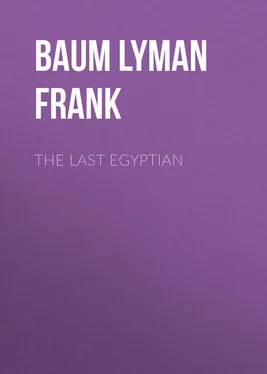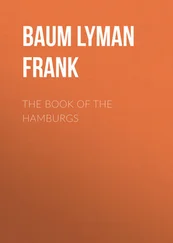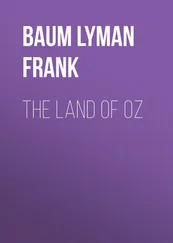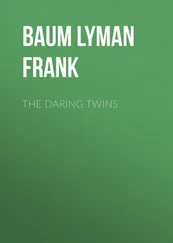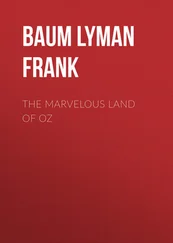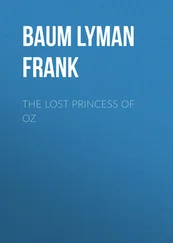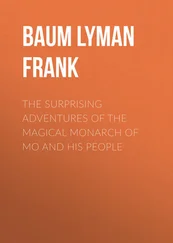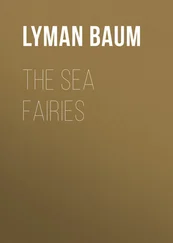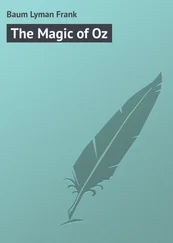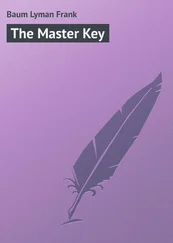Lyman Baum - The Last Egyptian
Здесь есть возможность читать онлайн «Lyman Baum - The Last Egyptian» — ознакомительный отрывок электронной книги совершенно бесплатно, а после прочтения отрывка купить полную версию. В некоторых случаях можно слушать аудио, скачать через торрент в формате fb2 и присутствует краткое содержание. Жанр: foreign_antique, foreign_prose, на английском языке. Описание произведения, (предисловие) а так же отзывы посетителей доступны на портале библиотеки ЛибКат.
- Название:The Last Egyptian
- Автор:
- Жанр:
- Год:неизвестен
- ISBN:нет данных
- Рейтинг книги:5 / 5. Голосов: 1
-
Избранное:Добавить в избранное
- Отзывы:
-
Ваша оценка:
- 100
- 1
- 2
- 3
- 4
- 5
The Last Egyptian: краткое содержание, описание и аннотация
Предлагаем к чтению аннотацию, описание, краткое содержание или предисловие (зависит от того, что написал сам автор книги «The Last Egyptian»). Если вы не нашли необходимую информацию о книге — напишите в комментариях, мы постараемся отыскать её.
The Last Egyptian — читать онлайн ознакомительный отрывок
Ниже представлен текст книги, разбитый по страницам. Система сохранения места последней прочитанной страницы, позволяет с удобством читать онлайн бесплатно книгу «The Last Egyptian», без необходимости каждый раз заново искать на чём Вы остановились. Поставьте закладку, и сможете в любой момент перейти на страницу, на которой закончили чтение.
Интервал:
Закладка:
Sĕra picked up her cigarette.
“When did Hatatcha go to Anubis?” she asked her daughter.
“Kāra did not say,” returned the girl. “I was with her at the last sunset, and she was dying then.”
“It matters nothing,” said the dragoman, carelessly. “Hatatcha is better off in the nether world, and her rascally grandson must now go to work or starve his royal stomach.”
“Who knows?” whispered Sĕra, with an accent of awe. “They have never worked. Perhaps the gods supply their needs.”
“Or they have robbed a tomb,” returned Tadros. “It is much more likely; but if that is so I would like to find the place. There is money in a discovery of that sort. It means scarabs, and funeral idols, and amulets, and vases and utensils of olden days, all of which can be sold in Cairo for a good price. Sometimes it means jewels and gold ornaments as well; but that is only in the tombs of kings. Go to Hatatcha, my Sĕra, and keep your eyes open. Henf! what says the proverb? ‘The outrunner of good fortune is thoughtfulness.’”
The mother of Nephthys nodded, and drew the last possible whiff from her cigarette. Then she left the hut and hurried under the heavy arch of Hatatcha’s dwelling.
Five women, mostly old and all clothed in deep black, squatted in a circle around the rushes upon which lay the dead. Someone had closed Hatatcha’s eyes, but otherwise she lay as she had expired. In a corner Kāra was chewing a piece of sugar-cane.
Sĕra joined the circle. She threw sand upon her head and wailed shrilly, rocking her body with a rhythmical motion. The others followed her example, and their cries were nerve-racking. Kāra looked at them a moment and then carried his sugar-cane out of doors.
For a time he stood still, hesitating. There was work for him to do, and he had only delayed it until the mourners were in possession of the house. But the sun was already hot and a journey lay before him. Kāra sighed. He was not used to work.
He walked to the north end of the huddle and entered the house of the blind man, Nikko. A Syrian donkey, with a long head and solemn eyes, stood near the door, and its owner was seated upon the ground rubbing its feet with an old rag that had been dipped in grease. Kāra caught up a bridle and threw it over the donkey’s head.
“Who is it?” asked Nikko, turning his sightless eyes upward.
Kāra made no reply, but swung the saddle across the animal’s back and tried to strap the girth. The old man twined his thin legs around those of the donkey and reached up a hand to pull the saddle away.
“It is Hatatcha’s brute of a grandson!” cried Nikko, struggling to resist. “No other would try to rob me of my dear Mammek. Desist, or I will call the dragoman, who arrived this morning!”
For answer Kāra dealt him a kick in his stomach and he doubled up with a moan and rolled upon the ground. Then the royal one led Mammek out of the door and lightly leaped upon the donkey’s back.
“Oo-ah!” he cried, digging his heels into the animal’s flanks; and away trotted Mammek, meek but energetic.
There was no path in the direction he went and the desert sands seemed interminable. Kāra sat sidewise upon the donkey and sucked his sugar-cane, keeping the beast at a trot at the same time. An hour passed, and another. Finally a heap of rocky boulders arose just ahead of him, with a group of date palms at its foot. The heap grew bigger as he approached, and resolved itself into a small mountain, seared by deep fissures in the rocks. But there was verdure within the fissures, and several goats lay underneath the trees. Kāra rode past them and up to the foot of the mountain, where there was an overhanging entrance to a cave.
Throwing himself from the donkey, he ran into the cave and knelt at a spring which welled sparkling and cool from the rocks. Mammek followed and thrust his nozzle into the water beside Kāra’s face. They drank together.
Then the man stood up and called aloud:
“Hi-yah, Sebbet; hi-yah!”
Someone laughed behind him, and Kāra swung upon his heel. There stood confronting him a curiously misshapen dwarf, whose snowy hair contrasted strangely with his dark chocolate skin. He was scarcely as tall as Kāra’s waist, but his body and limbs were so enormous as to convey the impression of immense strength. He wore a spotless white burnous, which fell from his neck to his feet, but his head was bare of covering.
While the young man stared the dwarf spoke.
“I know your mission,” said he, in ancient Egyptian. “Hatatcha is dead.”
“It is true,” returned Kāra, briefly.
“She swore I would live long enough to embalm her,” continued the dwarf, rubbing his nose reflectively; “and she was right. A wonderful woman was old Hatatcha, and a royal one. I will keep my compact with her.”
“Can you do it?” asked Kāra, wondering. “Do you know the ancient process of embalming?”
“Why, I am no paraschites, you understand, for the trade is without value in these degenerate days. But I successfully embalmed her mother – your great-grandmother – and Hatatcha was greatly pleased with the work. Does not your great-grandmother look natural? Have you seen her?”
Kāra shook his head.
“Not yet,” he said.
“And I have safely hoarded the store of aromatic gums and spices, the palm wine and myrrh and cassia, and the natron, with which Hatatcha long since entrusted me. The strips of fine linen for the bandages and the urns for the entrails are still in my storehouse, where they have remained since your grandmother gave them into my hands; so there is no reason why her wishes should not be carried out.”
“You will return with me?” asked Kāra.
“Yes, and bring the dead to this desolate spot,” replied the dwarf. “It is no longer Hatatcha, but the envelope which she used, and will use again. Therefore it must be carefully preserved. The process will require forty days, as you know. At the end of that time I will deliver Hatatcha’s mummy into your hands. You must then give to me a flat, oblong emerald that is graven with the cartouch of the mighty Ahtka-Rā. Is not that the compact, my prince?”
“It is, my Sebbet.”
“And you know where to find it?” asked the dwarf, anxiously.
“I know,” said Kāra.
The dwarf seemed pleased, and retired to make preparations for his journey. Kāra fell asleep in the cave, for the sun had been terribly hot and the long ride had exhausted him. The blind man’s donkey also lay down and slept.
In the middle of the afternoon Sebbet awakened the young Egyptian and gave him some cakes to eat and a draught of goat’s milk. Then he brought out a stout donkey of a pure white color and mounted it with unexpected agility. Kāra noticed a large sack fastened to the saddle-ring.
A moment later they were riding together across the sands.
“We must not reach Fedah before sundown,” remarked the dwarf, and Kāra nodded assent. So they went at a moderate pace and bore the blistering rays of the sun as none but natives of Egypt can.
At sundown they sighted Gebel Abu Fedah, and it was dark when they entered the narrow street of Fedah. Kāra dismounted from Mammek’s back at its master’s hut, and at a slap on the thigh the donkey bolted quickly through the doorway. Then the young man followed after the dwarf to the threshold of his own dwelling.
The mourners had gone home and Hatatcha lay alone; but someone had placed a coarse cloth over her face to keep the flies away.
The dwarf drew from his pocket a rush-candle and lighted it. Removing the face-cloth he gazed for several minutes earnestly upon the features of the dead woman. Then he sighed deeply, untied the sack from his saddle and blew out the flame of the candle.
Читать дальшеИнтервал:
Закладка:
Похожие книги на «The Last Egyptian»
Представляем Вашему вниманию похожие книги на «The Last Egyptian» списком для выбора. Мы отобрали схожую по названию и смыслу литературу в надежде предоставить читателям больше вариантов отыскать новые, интересные, ещё непрочитанные произведения.
Обсуждение, отзывы о книге «The Last Egyptian» и просто собственные мнения читателей. Оставьте ваши комментарии, напишите, что Вы думаете о произведении, его смысле или главных героях. Укажите что конкретно понравилось, а что нет, и почему Вы так считаете.
